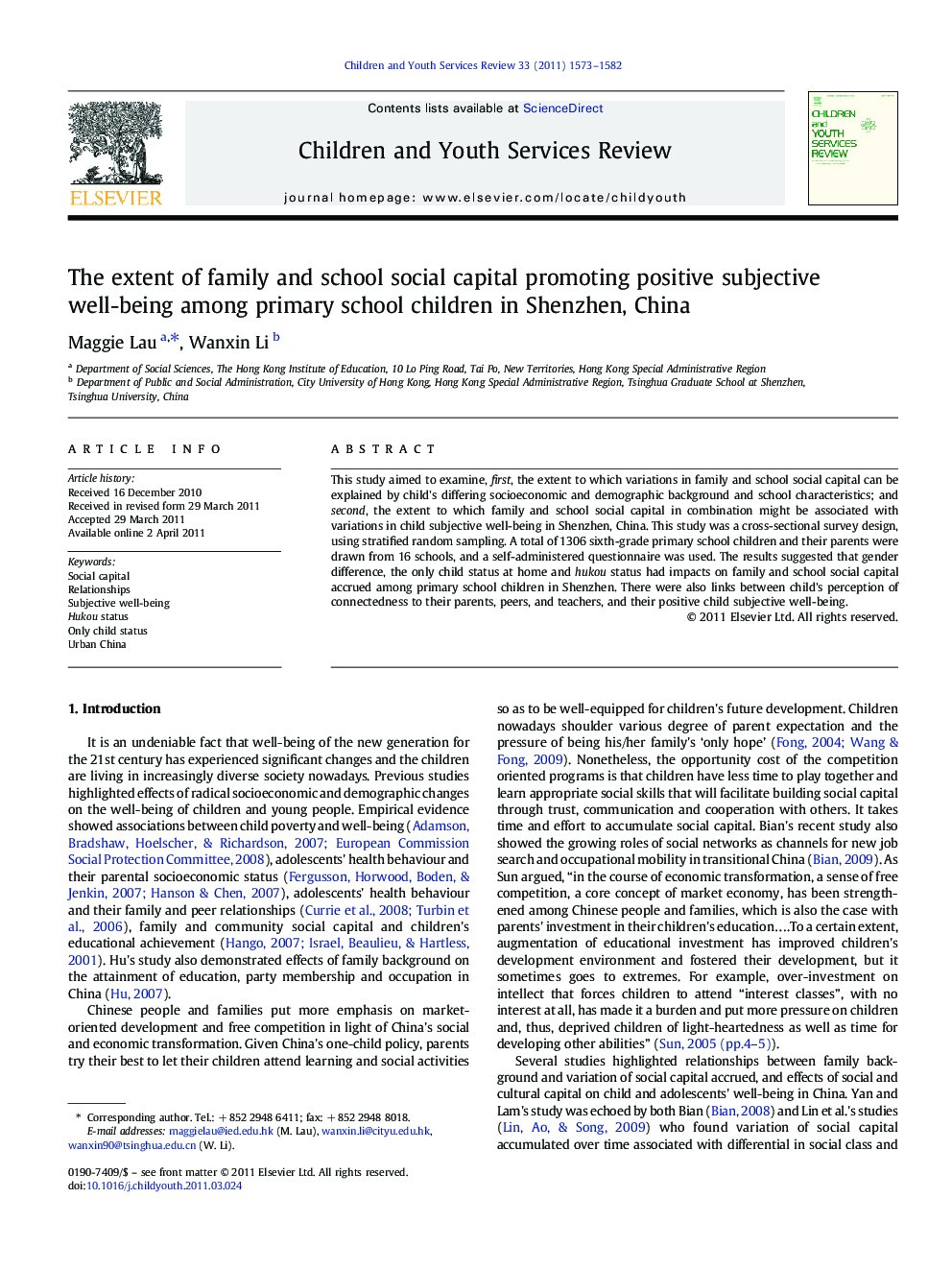| Article ID | Journal | Published Year | Pages | File Type |
|---|---|---|---|---|
| 346142 | Children and Youth Services Review | 2011 | 10 Pages |
This study aimed to examine, first, the extent to which variations in family and school social capital can be explained by child's differing socioeconomic and demographic background and school characteristics; and second, the extent to which family and school social capital in combination might be associated with variations in child subjective well-being in Shenzhen, China. This study was a cross-sectional survey design, using stratified random sampling. A total of 1306 sixth-grade primary school children and their parents were drawn from 16 schools, and a self-administered questionnaire was used. The results suggested that gender difference, the only child status at home and hukou status had impacts on family and school social capital accrued among primary school children in Shenzhen. There were also links between child's perception of connectedness to their parents, peers, and teachers, and their positive child subjective well-being.
Research highlights► The study contributed to the literature on social capital by focusing on the rarely studied age group between 11 and 12 years old in China. ► Gender difference, the only child status at home and hukou status had impacts on family and school social capital accrued among primary school children in Shenzhen. ► Child's perception of connectedness to their parents, peers, and teachers are positively correlated with their subjective well-being. ► Financial and social support from schools and teachers should be prioritized to children who are in disadvantaged socioeconomic positions.
